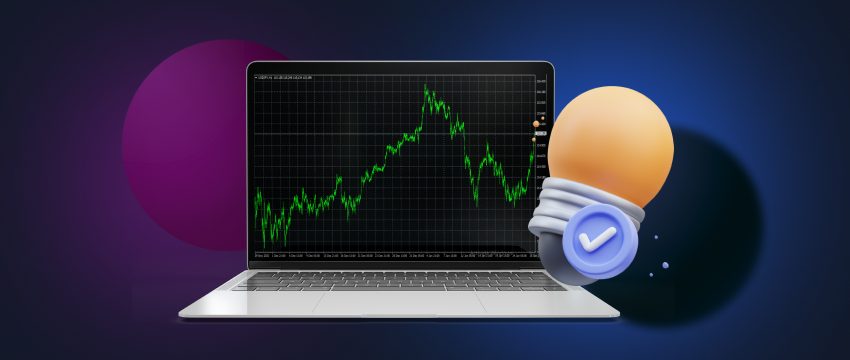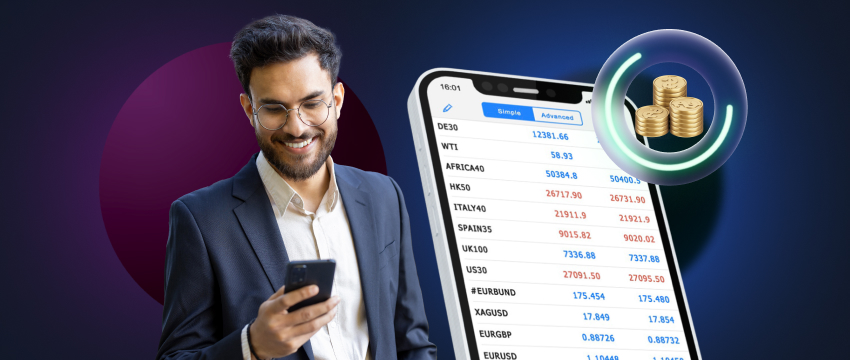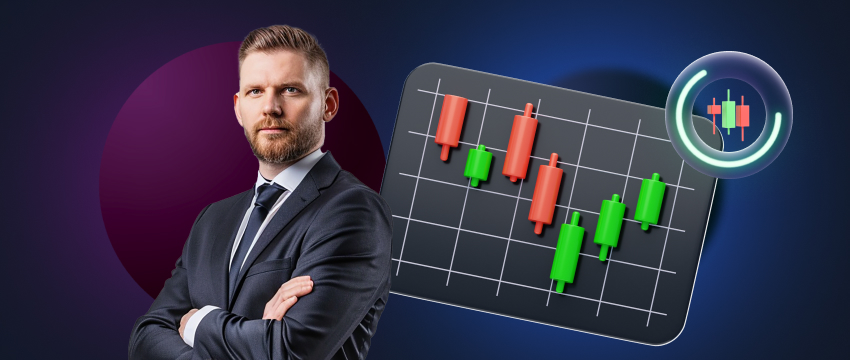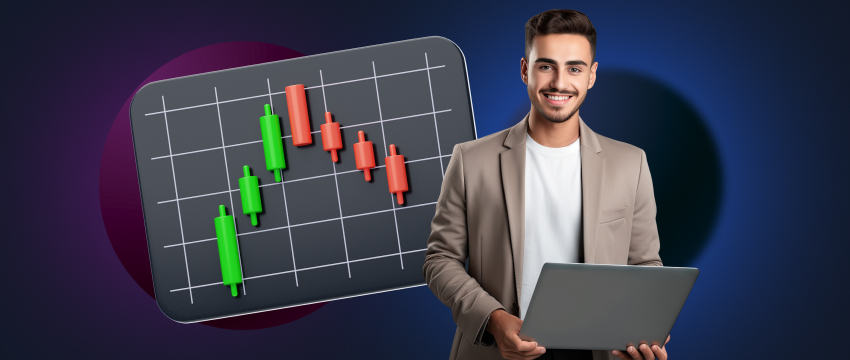Forex trading undoubtedly holds global appeal, with millions of traders worldwide looking to profit from the constant flux of currency prices. However, suppose you’re a forex trading beginner with little to no experience of what trading on the world’s largest financial market involves. In that case, it’s essential to approach forex trading with knowledge and a well thought out strategy.
In this blog, we’ll provide you with some key tips to navigate the forex market and become a more skilled forex trader.

Know the forex markets
One of the most important components of forex trading is gaining a robust understanding of the markets. Invest time to learn more about the different currency pairs, how they relate to each other, and the factors that impact currency prices.
Monitor the news, be mindful of economic announcements, study geopolitical events and market sentiment and trends, all of which drive the markets and influence trading outcomes. The more you know about the markets, the better equipped you will be to make strategic trading decisions.
Make a forex trading plan and stick to it
Another crucial element, not only for forex trading beginners but also for professional traders, is having a trading plan in place. The plan should clearly state your trading objectives.
Define the level of risk you’re willing to take. Specify the trading strategy you’ll use. Outline rules for opening and closing positions. Detail the analysis needed for trading decisions.
Once you have developed your plan, stay focused, and discipline yourself to stick to it. This will mitigate the risk of making impulsive decisions based on emotions. It helps you stay aligned with your plan.
Forex Trading Practice
If you’re new to trading, gaining sufficient practice is beneficial before moving to a real-life trades. One way to do this is by signing up for a demo trading account. Most forex brokers offer demo accounts.
A demo account is great because it simulates real trading conditions. It allows you to familiarise yourself with the منصة تداول. Test your trading strategies. Use technical or fundamental analysis. Gain confidence without risking your own capital.
Using virtual funds, you can open and close trades, journal outcomes, and tweak your plan if required. Practicing also allows a trader to nurture optimal trading habits and refine their skills and techniques.
Forecast the weather conditions of the market
Forex trading involves predicting market conditions to prepare for potential shifts or fluctuations. Traders typically use التحليل الفني to identify trends and determine potential entry and exit points. It also requires following financial news و economic reports that may impact price actions and market volatility.
Know your limits
As with anything in life, acknowledging your own limitations is vital to managing risk. In the context of trading, this means paying close attention to your budget so as to avoid losing money that you couldn’t afford to lose in the first place. It also means managing leverage effectively and in a way that aligns with your particular tolerance to risk.
The same logic applies to setting position sizes. Don’t overestimate your potential for profit, particularly when you’re using leverage. Start small whilst you’re still in the process of gaining forex trading expertise. Consider larger sizes once you’re better informed and have acquired considerable skills.
Know where to stop along the way
This ultimately refers to effective risk management. All traders are required to have efficient risk management tools in place to safeguard their funds.
These typically include stop loss and take profit orders to limit losses or lock in profits. Knowing when to enter or exit a trade, be this to maximise profits or reduce losing your money, is crucial for long-term success.
Trading psychology
Judgment can be clouded by emotions and result in impulsive decisions. Two prevalent emotions that can have a detrimental effect on trading are fear and greed.
Cultivate the self-control to remain composed and adhere to your trading plan, especially during periods of market volatility. If you notice yourself becoming emotional, step back and reevaluate your strategy.
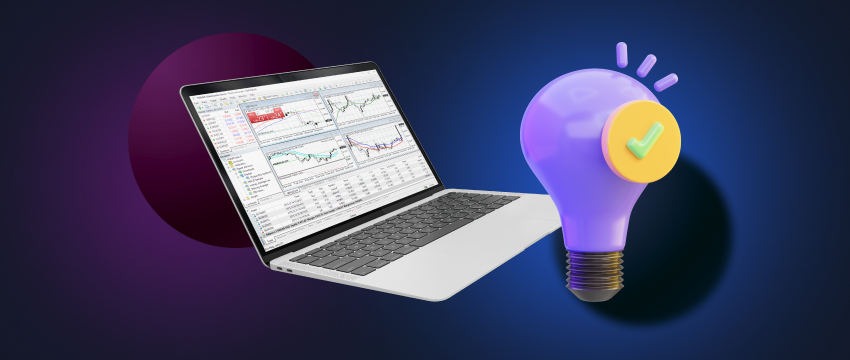
Keep it slow and steady
Don’t rush trading. Take your time to learn the complexities of the forex market so that you’ll be better able to handle them once you engage in live trading.
Learn as much as you can through podcasts, videos, blogs, webinars, seminars, e-books, etc. Practice consistently using a demo trading account. Gain the confidence you need to use your own money to trade, rather than jumping in with little to no knowledge and a complete lack of awareness of how to manage risk.
Forex trading is continuous learning
As we’ve already mentioned, there are many ways to learn forex trading, be this through blogs, podcasts, seminars, webinars, etc. Additionally, gaining practical experience through a demo trading account is also helpful.
Keep in mind though that learning should be ongoing. It’s not a static process, with a finite start and finish. It’s something fluid, that you need to invest time in to ensure you stay ahead of any new technological advancements or market changes.
Choose the right forex broker
Choosing a forex broker that best aligns with your needs is vital for an optimal trading experience. It requires conducting thorough research to determine what other traders are saying. It involves reading online reviews in order to make an informed decision. Other important factors for choosing a forex broker:
- Ensure the broker is regulated by a reputable financial authority, for increased trust and transparency.
- Establish whether the CFD broker offers a trading platform that will suit your skills, can facilitate the trading of your preferred financial instruments, and provides access to vital trading tools and resources.
- Check that the broker offers multiple accounts for you to choose from, and that align with your budget.
- Make sure the broker offers access to a top tier, multilingual customer support team with the necessary expertise to help you with any queries you might have.
- Pick a CFD broker that also provides high quality insightful educational resources to widen your scope of knowledge و boost your skills.
These tips are by no means an exhaustive list but certainly serve as a foundation for someone about to embark on their forex trading journey. In a nutshell, remember that to increase your likelihood for success, you need to take time to learn, put your theory into practice, and keep on educating yourself on a consistent basis.
It means staying disciplined and managing risk as best you can. And avoid common mistakes like trading without a plan, over-leveraging, overtrading, chasing losses, emotional trading, and failing to adapt to fluctuating market conditions.
Furthermore, make sure you conduct proper research into the forex broker you’ll eventually end up trading through. You want a partner who is there to help you succeed, and offers the tools you need to become the best trader that you can be.
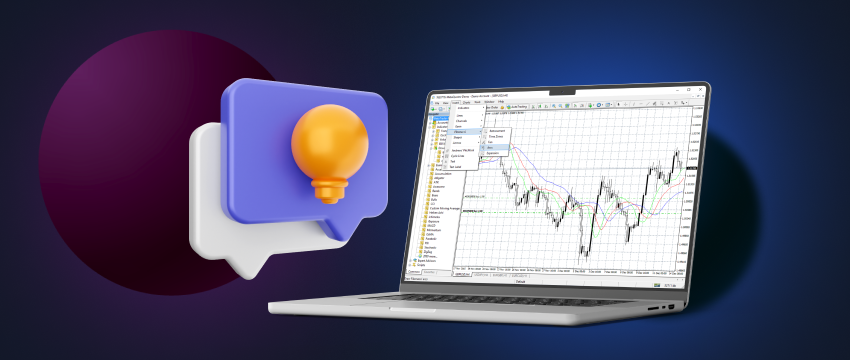
Become a T4Trade forex trader
T4Trade is a popular CFD broker used by traders across the globe. The broker offers a highly engaged, 24/5 multilingual customer support team, cutting-edge trading platforms, and flexible trading conditions.
T4Trade traders can choose from 300+ trading instruments across 6 asset classes, and enjoy flexible leverage, competitive spreads, quick execution and convenient deposit and withdrawal options.
Traders can also opt for a trading account that best suits their needs and individual preferences. The T4Trade Academy is also a great learning resource if you’re looking to increase your forex-related knowledge and boost your skills.
إخلاء مسؤولية: This material is for general informational and educational purposes only and should not be considered investment advice or an investment recommendation. T4Trade is not responsible for any data provided by third parties referenced or hyperlinked in this communication.
